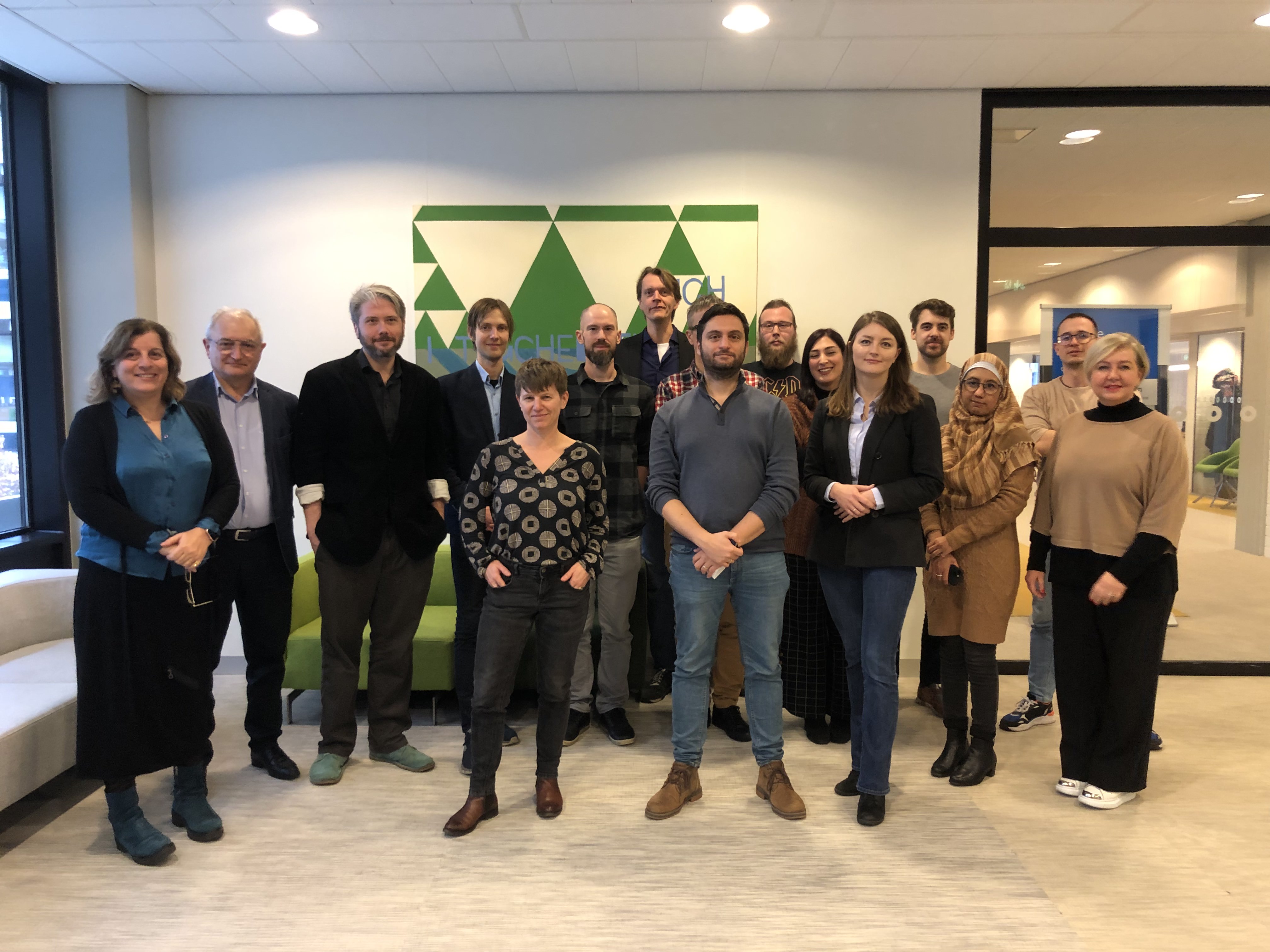Ready for Reproducibility: What happened at TIER2's kick-off in Amsterdam
Consortium members gathered on the 1st and 2nd of February 2023 for TIER2’s official kick-off meeting. The two-day event was hosted at Vrije Universiteit, Amsterdam and featured insightful presentations of the five work packages, lively discussions and planning of specific tasks and outcomes, and of course – spending the time connecting with like-minded colleagues in person (and online).
 Consortium members at Vrije Universiteit Amsterdam
Consortium members at Vrije Universiteit Amsterdam
The kick-off started with a quick introduction round of all joining partners, as well as an introductory presentation for the whole project given by the project coordinator Dr. Tony Ross-Hellauer. The first day continued with brief overview presentations of the project policy and the role of the European Research Executive Agency (REA), after which the focus shifted to project timeline, tasks, outcomes and work packages.
Here are some takeaways from the work package presentations over the two days:
-
Work Package 1 – Communication and Management
To ensure alignment and cooperation with sister projects, networks and initiatives in the world of reproducibility and open science, plans were discussed for establishing contact and sharing best practices and project outcomes.
Autoethnographic practices will ensure TIER2’s adherence to the highest possible reproducibility standards together with a comprehensive Data Management Plan. Quarterly reproducibility diaries will be filled from 5 partners, and a reproducibility questionnaire will be distributed to all partner organisations before each general assembly.
-
Work Package 2 – Communities, Communication and Dissemination
To create a tailored co-creation and dissemination environment, a stakeholder map will be developed, and champions of reproducibility will be selected across domains. They will engage in brainstorming events (e.g. “barCamps” and “unconferences”) to co-create and test reproducibility tools for the reproducibility hub, which will serve as a knowledge base for best practices from the project and beyond..
The project website as well as social media (Twitter, LinkedIn, YouTube) will be used to engage the public and to host, share and promote project outputs, relevant events and publications, and dissemination materials. Project workflows, data and other outputs will also be added to TIER2’s collection in the RIO journal, ensuring maximum transparency.
-
Work Package 3 – Concept, Evidence, Synthesis and Recommendations
Literature mapping, analytic research, as well as focus groups and co-creation communities will be employed in order to produce a matrix of contextual factors related to reproducibility, and to create a conceptual reproducibility framework.
At the same time, evidence mapping of reproducibility tools and practices will be conducted using scoping reviews of academic and grey literature, forming the content of the Reproducibility Hub.
-
Work Package 4 – Community-driven Design and Piloting of Reproducibility Tools & Practices
Future studies, focus groups and online workshops will be employed in order to assess best future scenarios for reproducibility, as well as creating detailed roadmaps for achieving them.
The outputs of this WP are 8 pilots which will be developed and validated, including checklists, reproducibility management plans, threaded publications, and others. Relevant stakeholders will be actively engaged in the process for optimal results.
-
WP5 – Development of Tools and Practices for Communities
The three tasks within this WP are devoted to funders, publishers and researchers, respectively, in order to develop and adapt practical reproducibility-related tools and practices for each, based on the scoping work in WP3 and WP4.
Representatives from each stakeholder group will collaborate to produce a reproducibility checklist, upgrading DMP to RMP (Reproducibility Management Plan), develop streamlined workflows and approaches for threaded publications, and Reproducibility Promotion Plans for funders.
The second day finished with a brainstorming session on key issues identified during the kick-off meeting and a final wrap-up and planning session for the first months of the project. If you are interested to learn more about the content of our discussion, all slides from the kick-off are available on our website.
